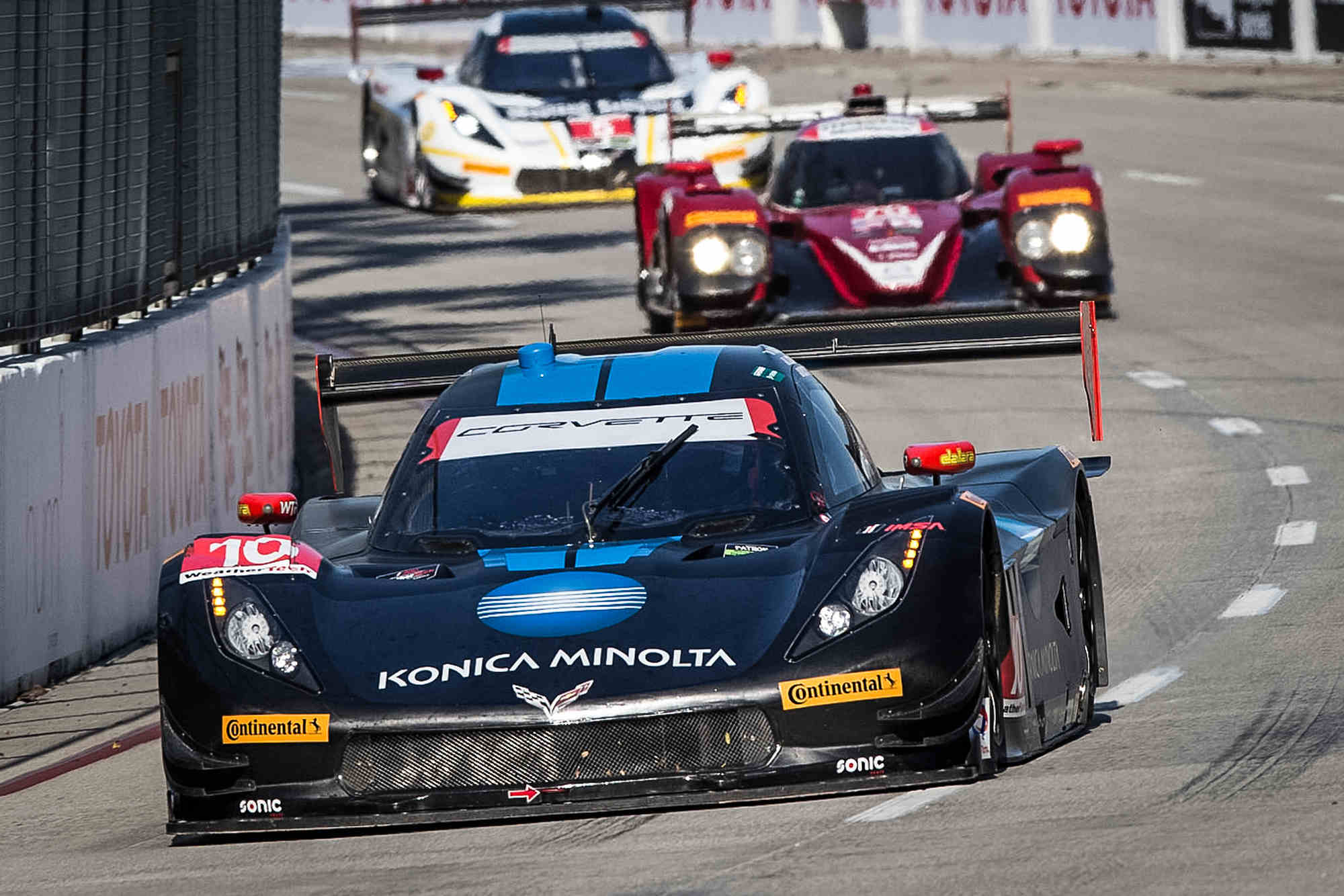IMSA Leaders Requesting Stakeholder Feedback
 |
| IMSA at Long Beach back in April |
During the recent Continental Tire Monterey Grand Prix Powered by Mazda race weekend, IMSA CEO Ed Bennett and President Scott Atherton circulated an online memo among IMSA stakeholders.
Titled "IMSA Future Strategy Letter," the one-page memo alluded to potential future adjustments in the IMSA WeatherTech SportsCar Championship, the IMSA Continental Tire SportsCar Challenge, and the IMSA Mazda Prototype Lites presented by Cooper Tire.
In particular, the Prototype Challenge class in the WeatherTech Championship was mentioned. In the Continental Tire Challenge, both classes, Grand Sport and Street Tuner, were mentioned, as were both classes, Lites One and Lites Two, in Mazda Prototype Lites.
The memo also mentioned that IMSA is "taking into consideration" three global motorsport classes of racing, and one global automotive trend. The three classes are LMP3, GT4 and TCR, or Touring Car Racing. The trend is the "increased complexity of conversion from production vehicles to race vehicles."
While it is possible, and tempting, to take some of the racing classes and trends mentioned in the memo and apply them to perceived present or future needs for the three IMSA series, Atherton and Bennett said in an interview that doing so would be premature.
"Our intention is to take a strategic, critical look at these categories that are running with us both in the WeatherTech Championship and the Continental Tire Challenge and to begin the dialog, so the memo is written very purposefully to not lead its readers in a specific direction because that would imply we've already made a decision, and the rest is just a formality," Atherton said.
"There is truly a desire on our part to start that duologue and to hear from every stakeholder we have – both those who are directly impacted, as well as others who think, ‘We've never thought of this. That's a great idea.'
[adinserter name="GOOGLE AD"]"The follow-along to this memo will be a series of conferences that will be aligned with specific categories to go through a conversation not unlike we're having right now, to throw out some ideas that we've been batting around internally, and see if they make sense to those who are most impacted and to see what tweaks and adjustments we would have to make in order to make it better, and hopefully discover some gold nuggets in that process that nobody within our four walls has come up with," Atherton added.
"This hopefully is to start the process with our stakeholders," Bennett said. "Everybody should know these conversations are going on. We thought it was the right time – we wanted to do it for months but Daytona and Sebring were busy, as was Long Beach, so [at Mazda Raceway Laguna Seca], with the OEM Council present, it was the right time. And there's enough time for whatever adjustments we need to make moving forward. There are options for all these things we are trying to serve up – specifications that we think are worthy of consideration now."
Atherton said that now is the right time to initiate a duologue on aspects of the series' future, since the merger between the American Le Mans Series and GRAND-AM Rolex Sports Car Series – now well into its third year – "consumed every waking moment of our time. And that's not an exaggeration, that's a statement of fact. To come forward to where we are today we are happy to report that the merger is part of our history – it has been completed. It's over with, it's behind us. And for the first time, we have the bandwidth, the time and the resources to sit down and truly begin planning from a strategic perspective."
"We're now benefiting from what we all did together," Bennett said, "but it was a hard-fought couple of years."
Among the goals that they now have time to consider, Atherton said, is to better manage the multiple series that IMSA presents over a weekend of racing. "Strategically, as a sanctioning body, the bigger-picture goal here is to make these weekends more focused on our premium product," he said. "We are going for quality rather than quantity in that perspective. That can take many forms.
"And that's why this memo was written when it was. Not to imply, but to open up a duologue, and to start conveying that. This part of the sport was never intended to be all things to all people, but there are some examples to where it has evolved into more of that than we would prefer. And this process we're going through now is an opportunity to pull back."
